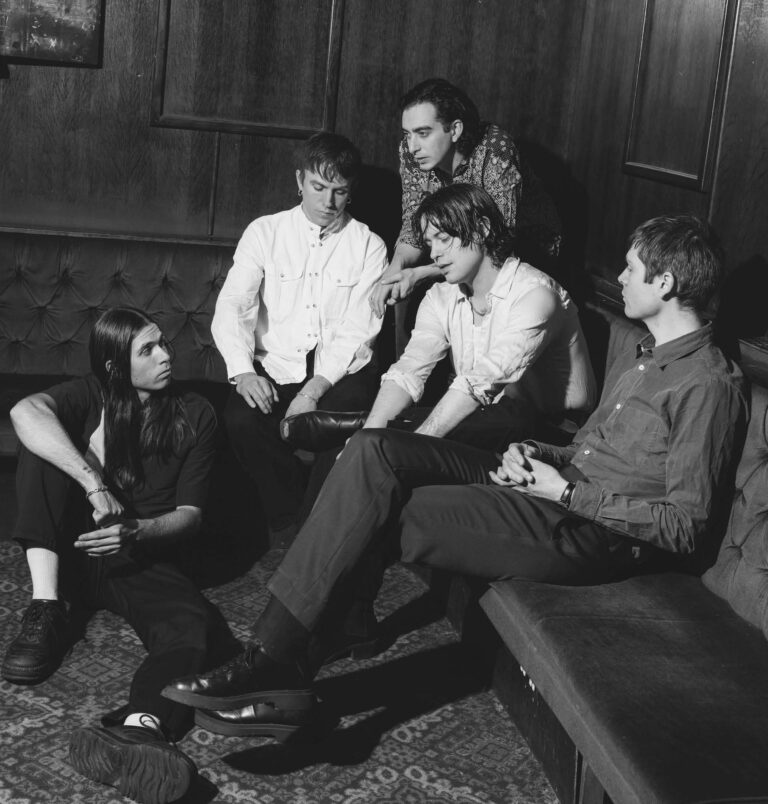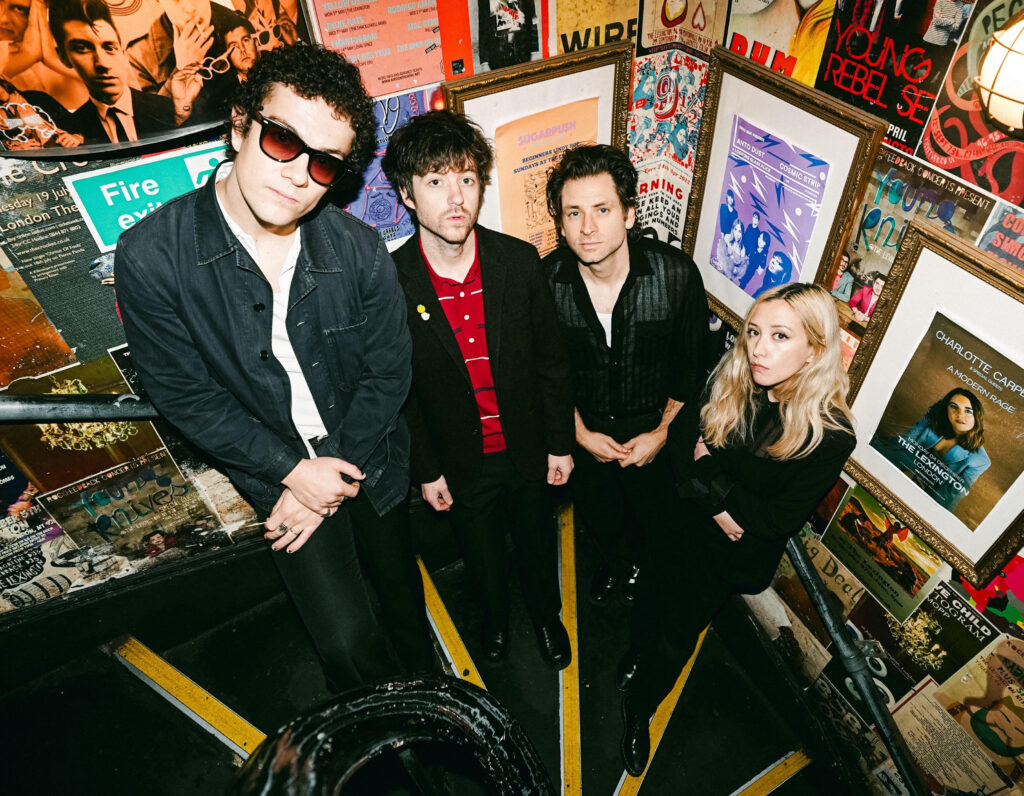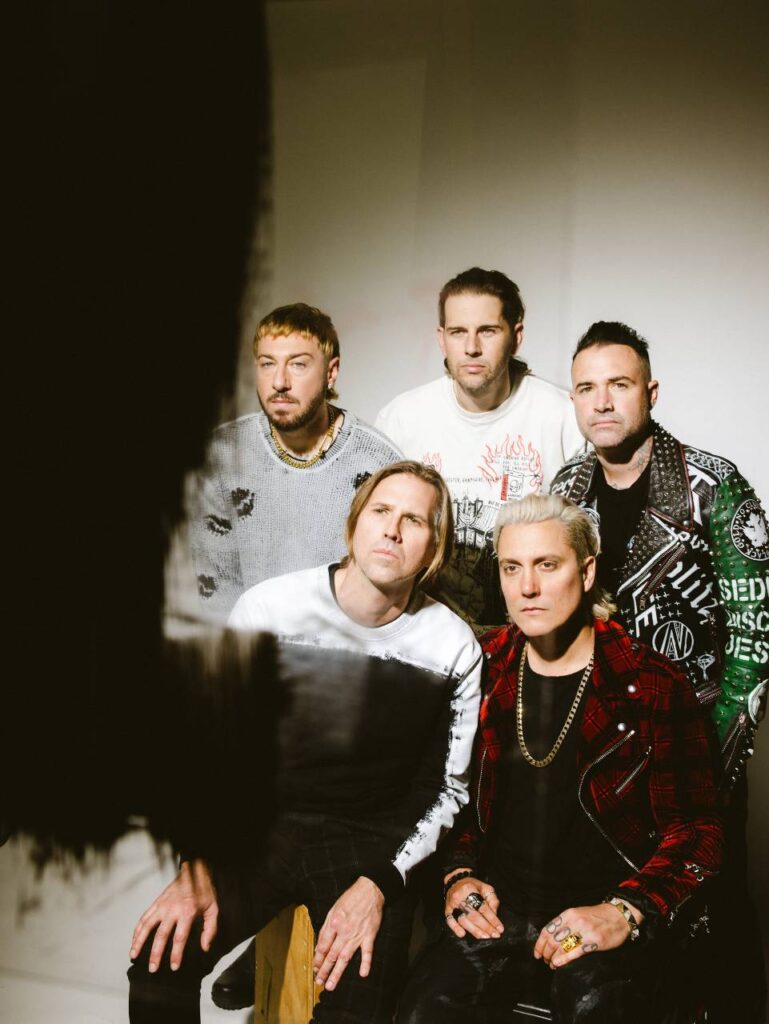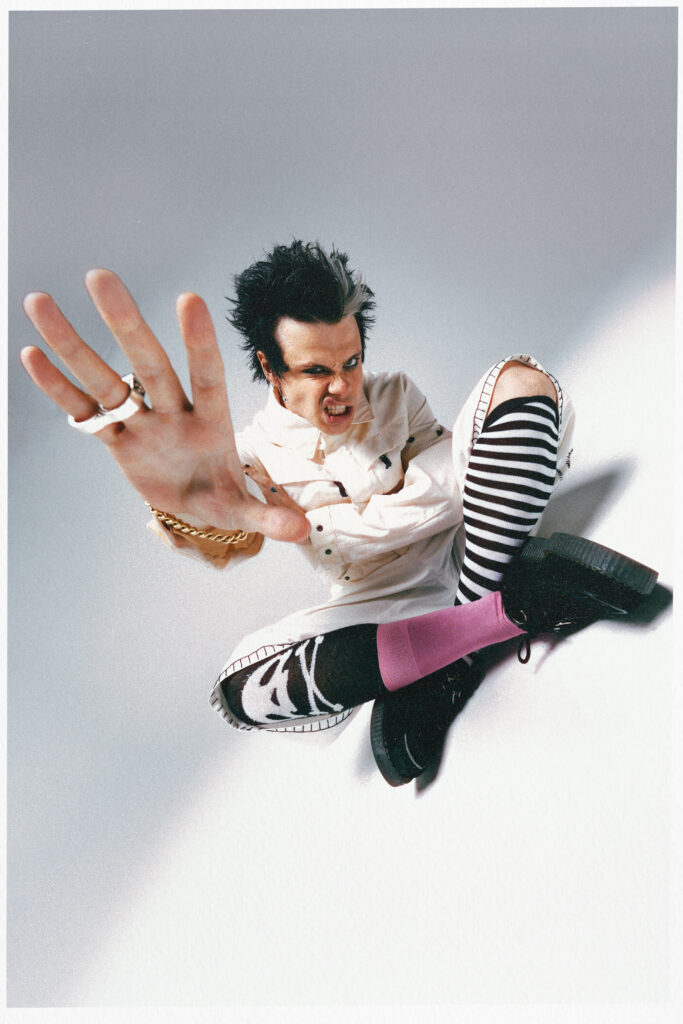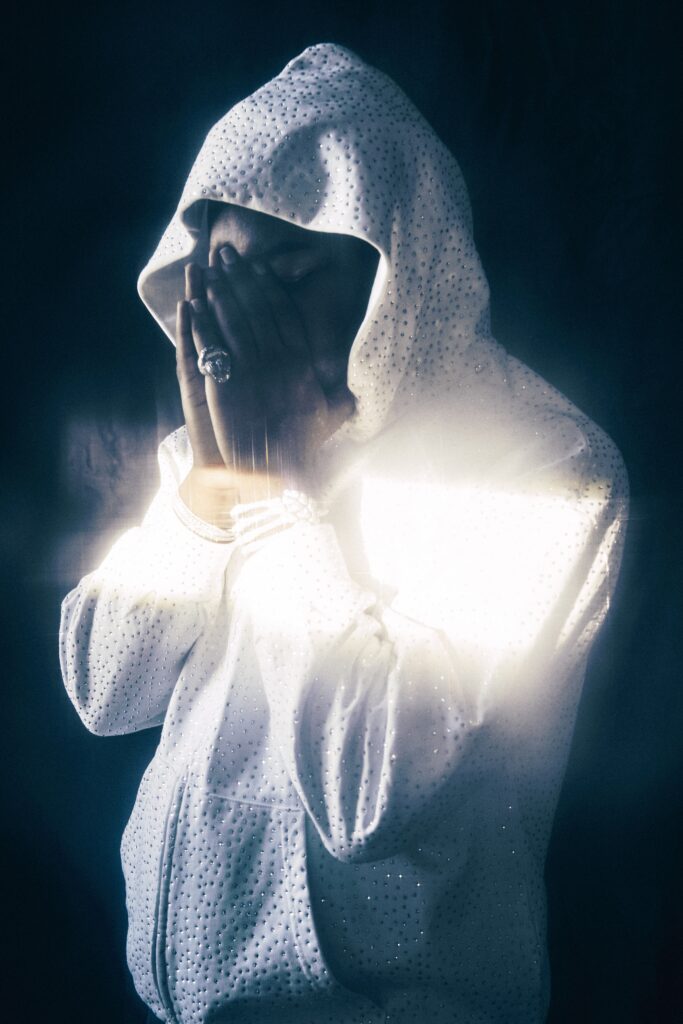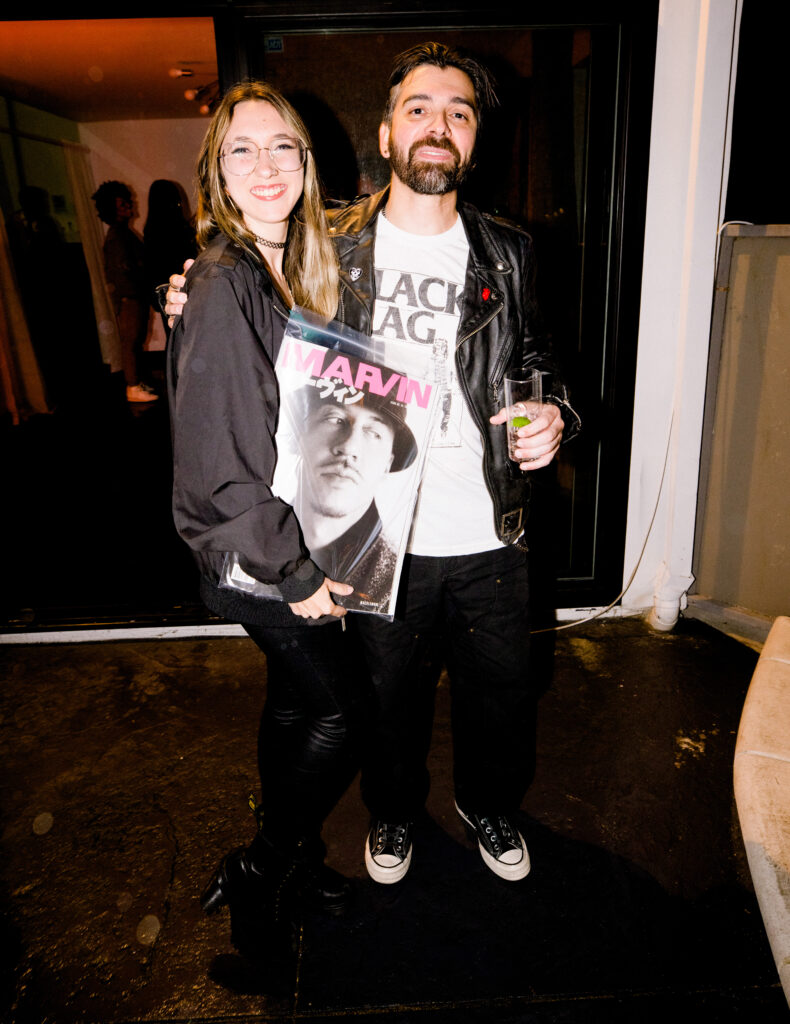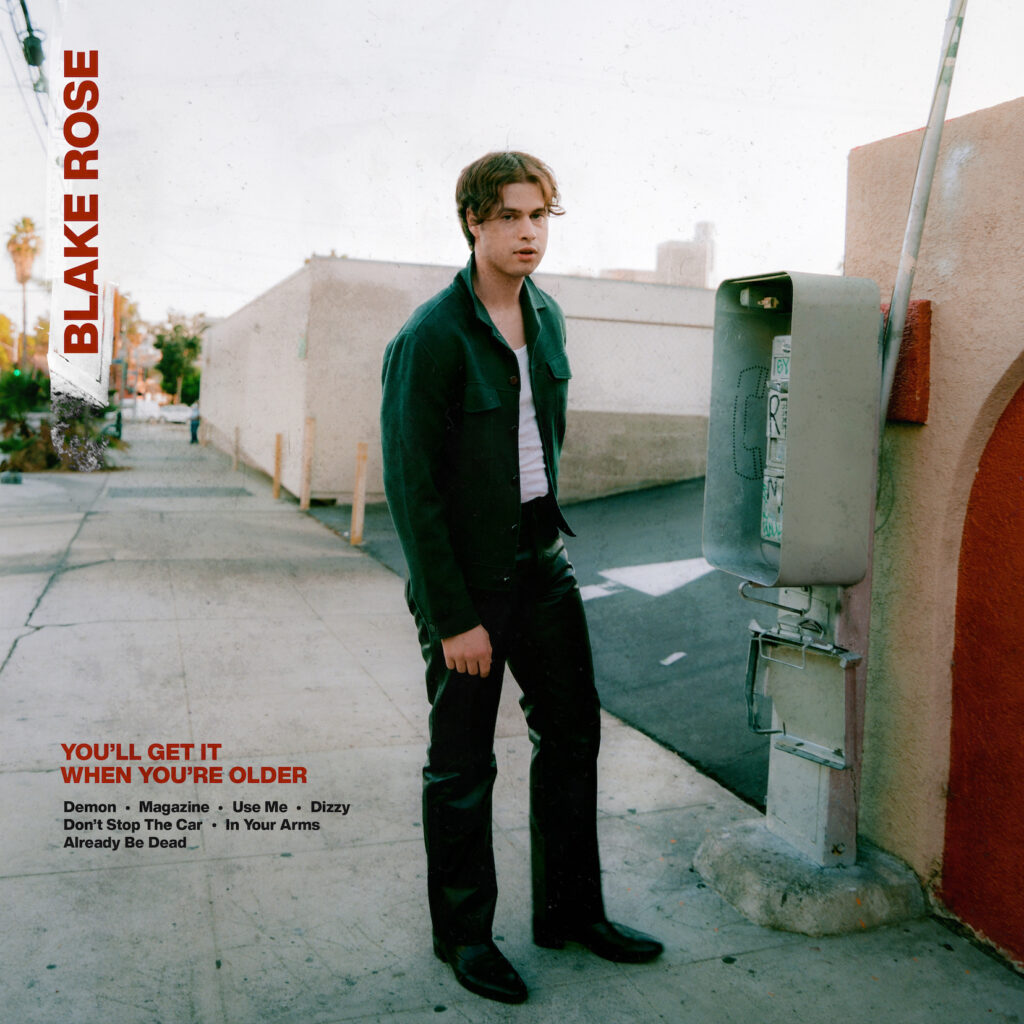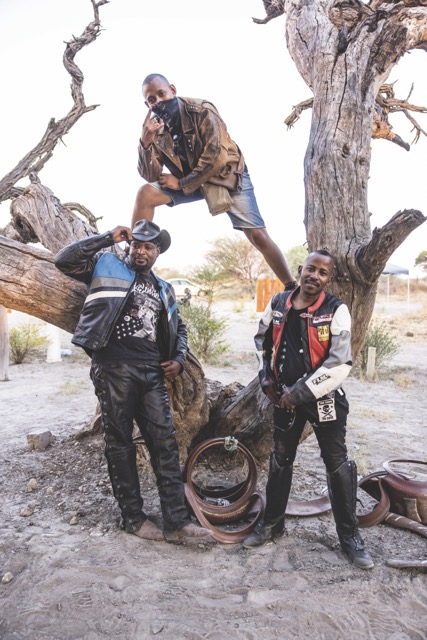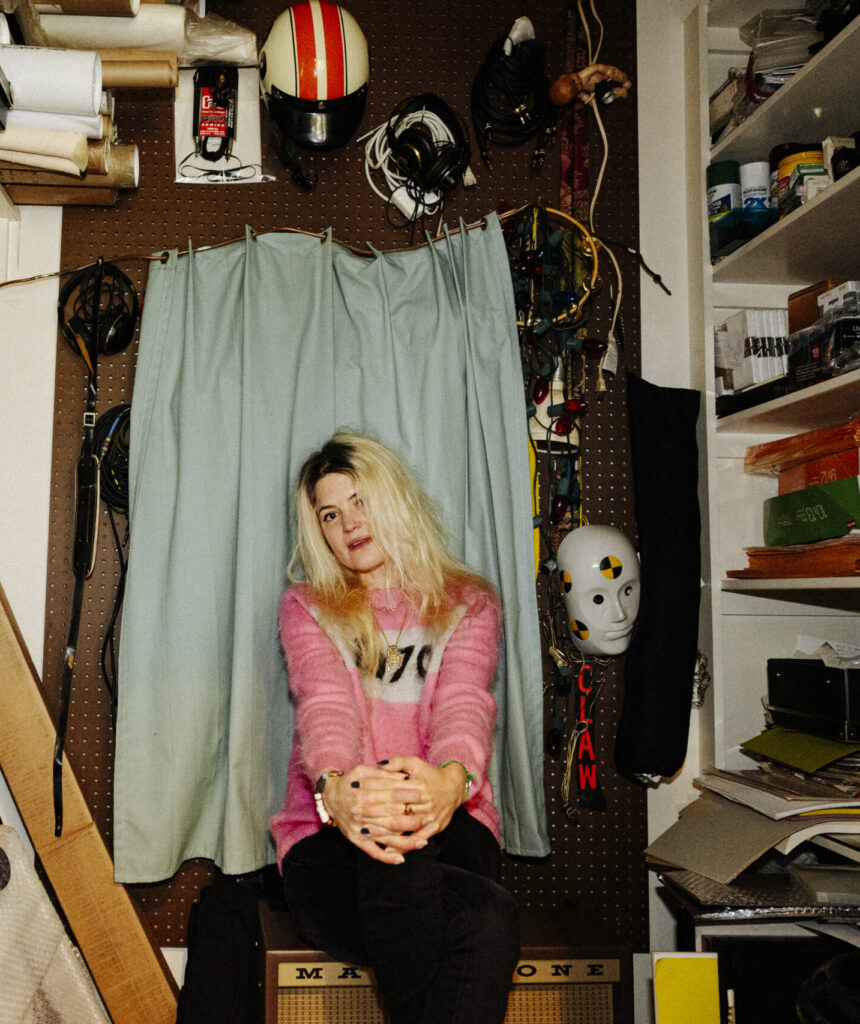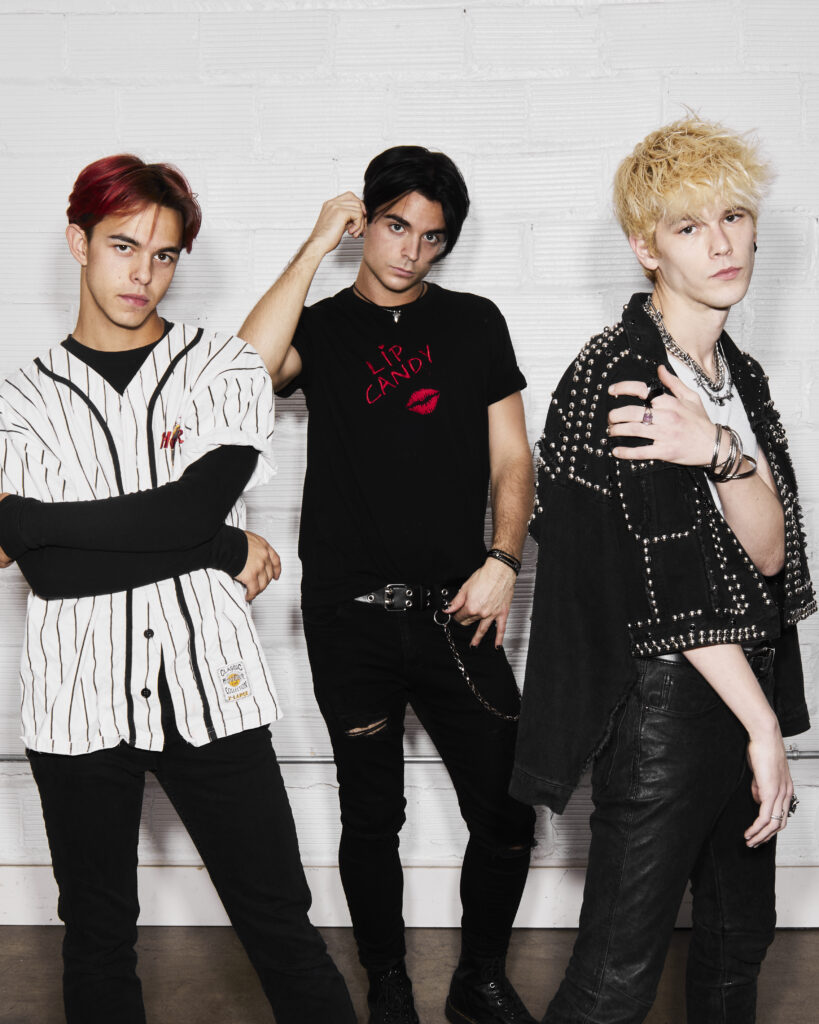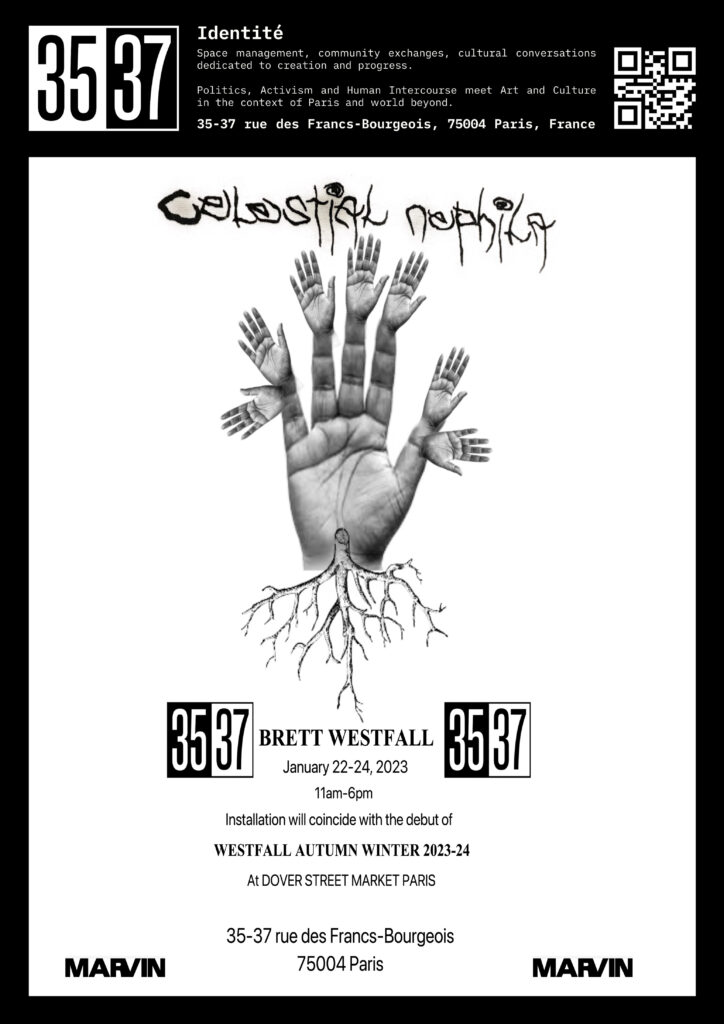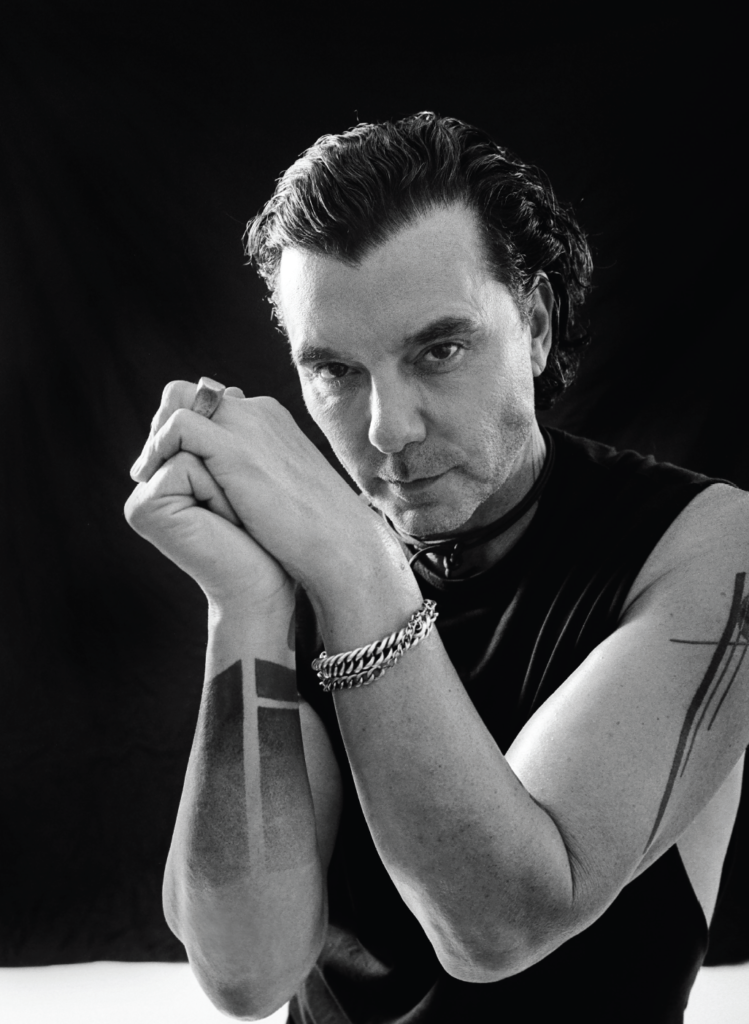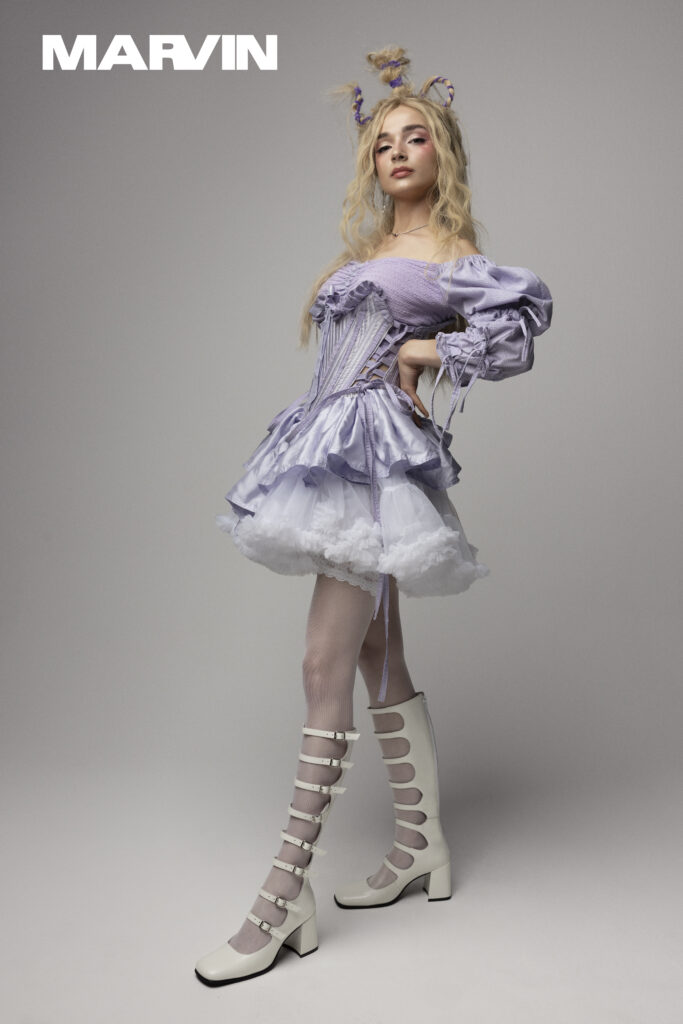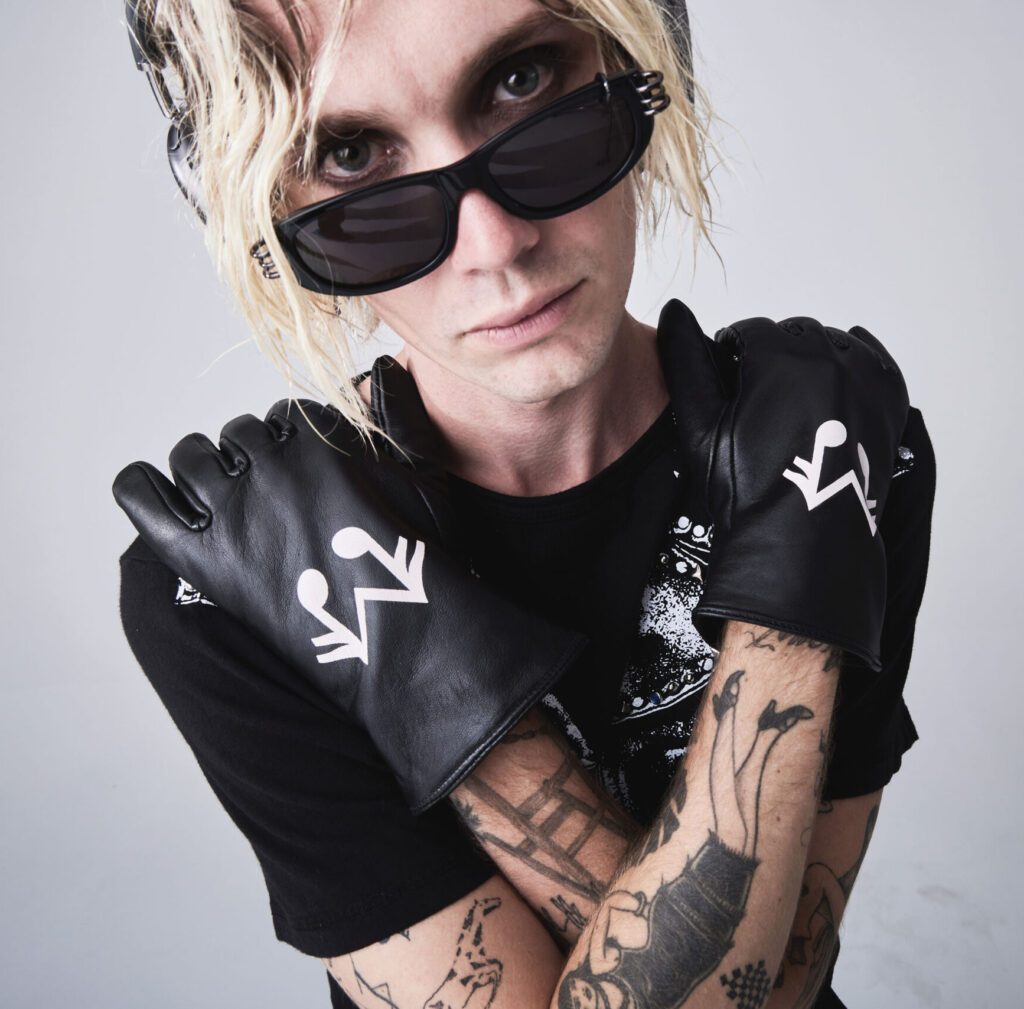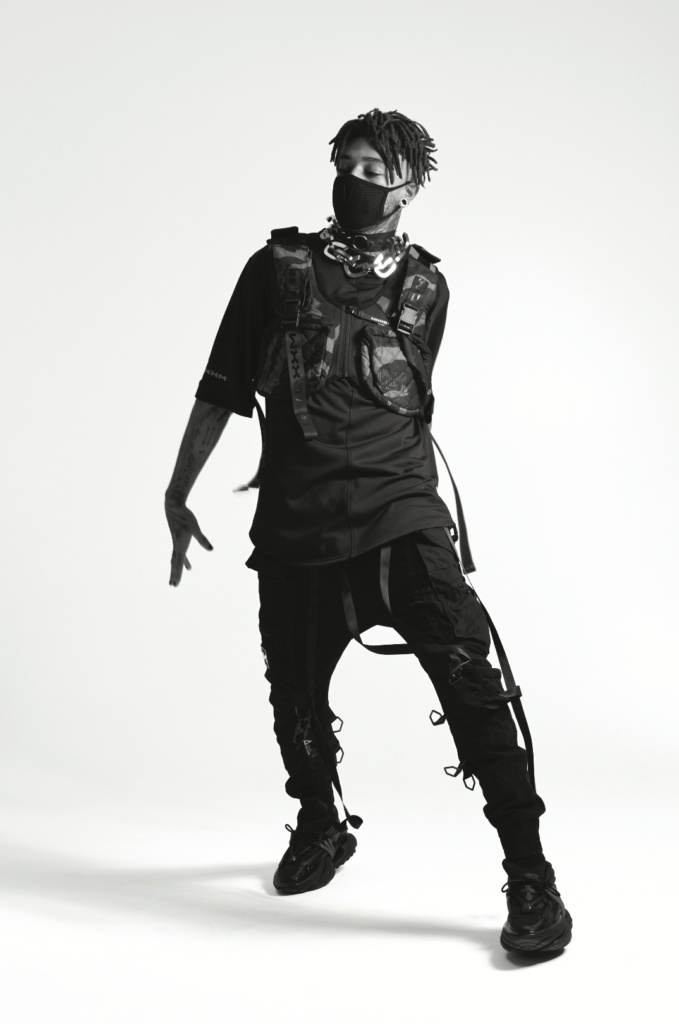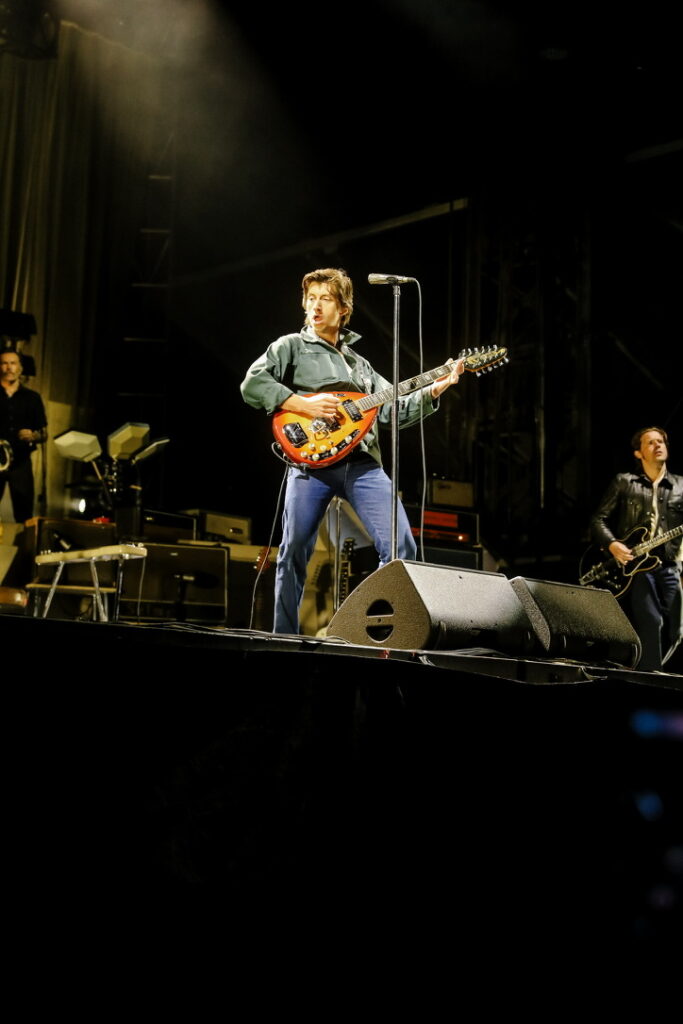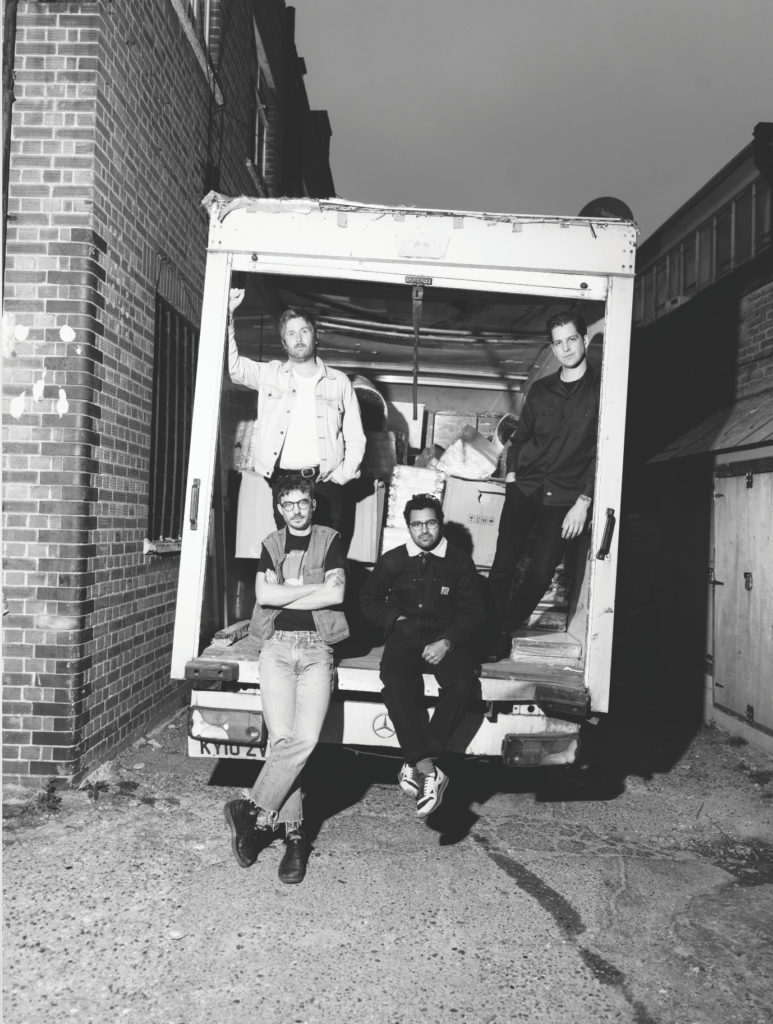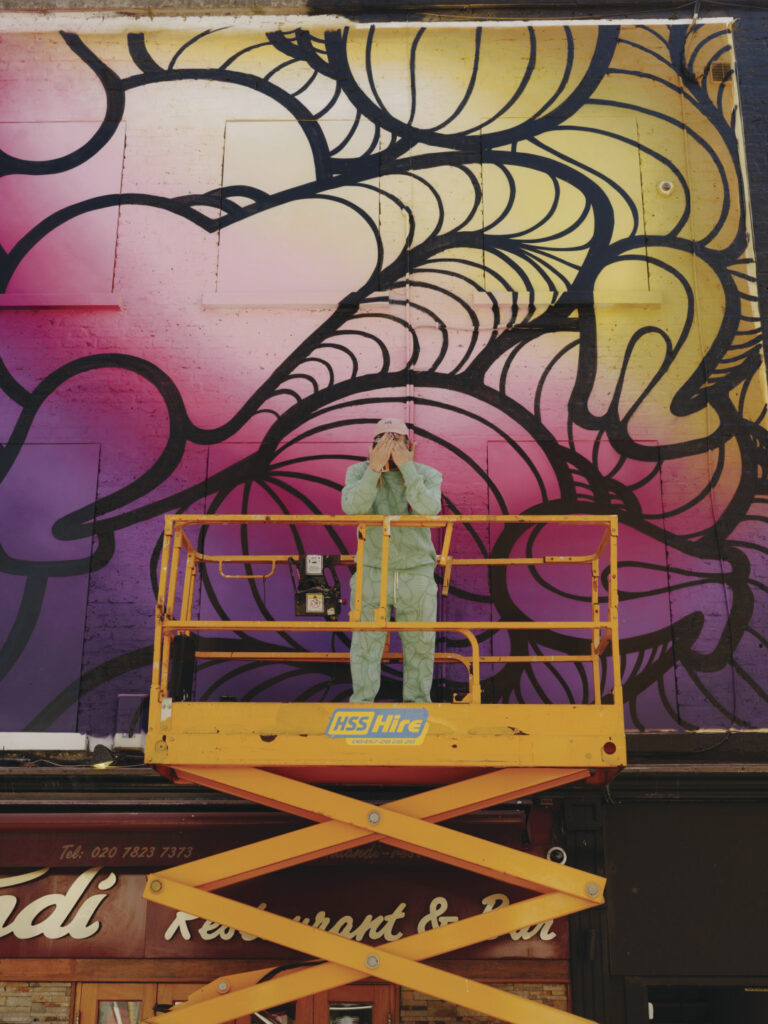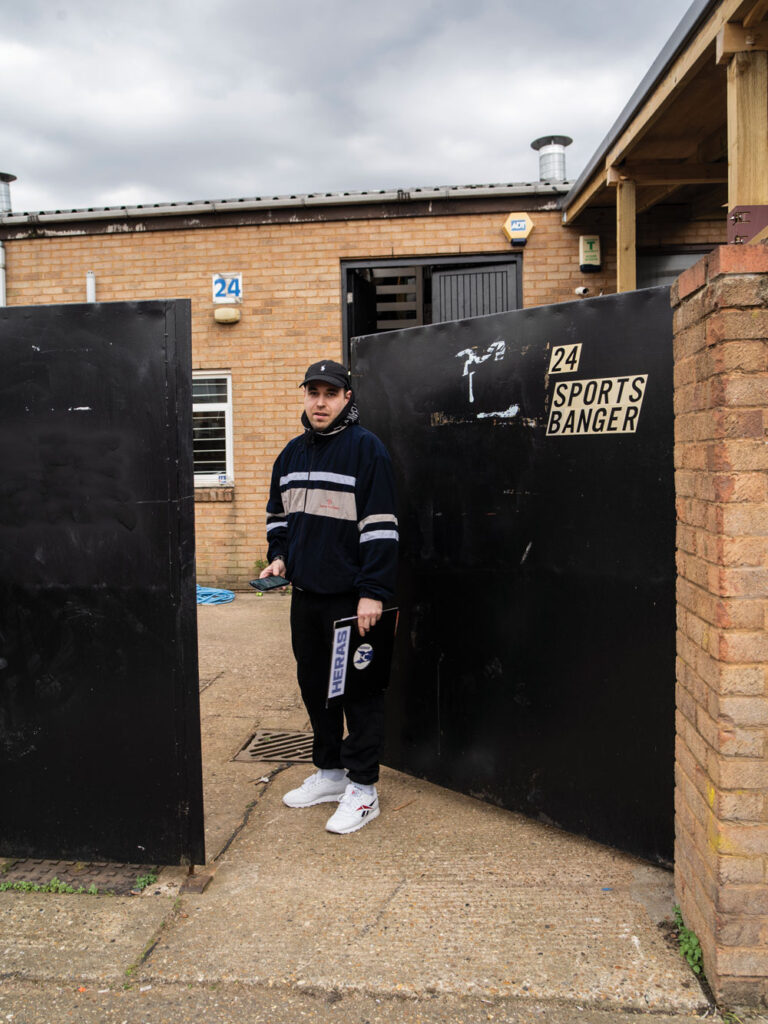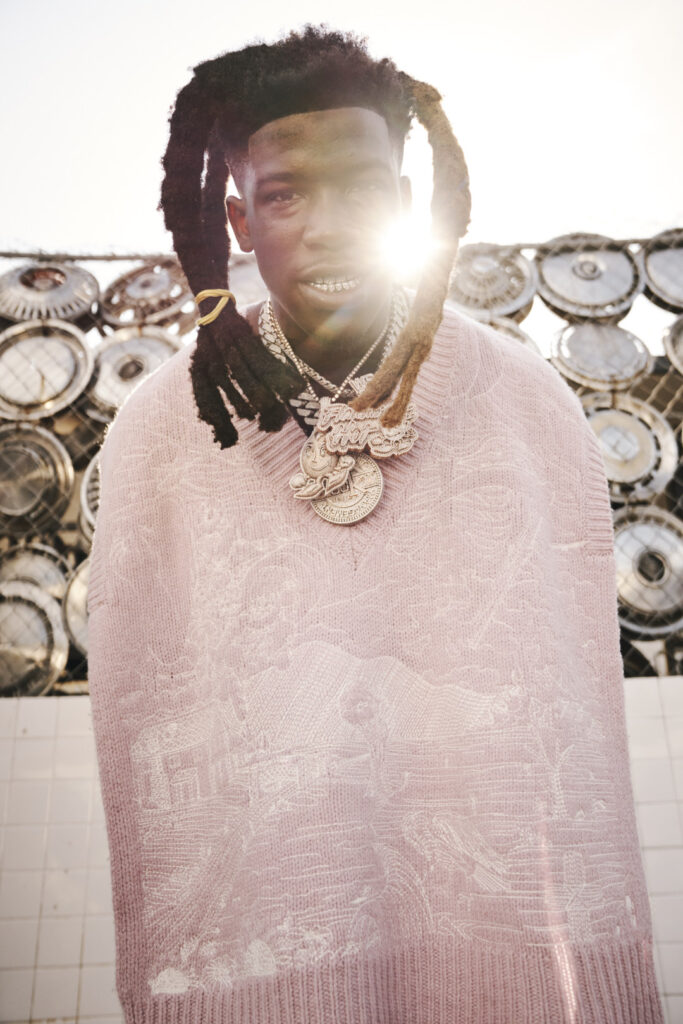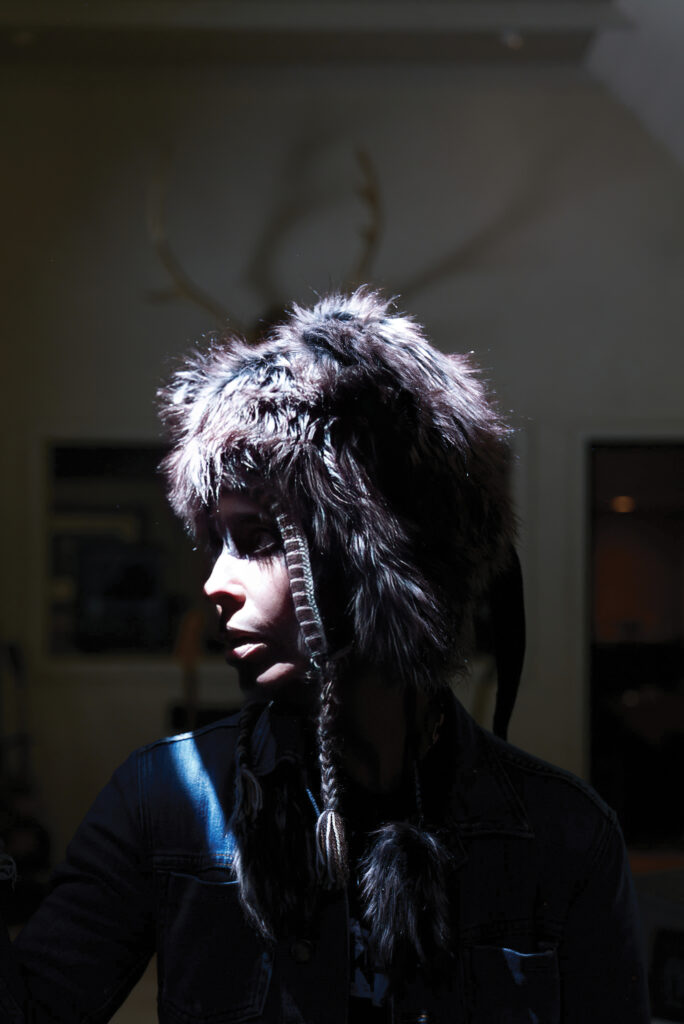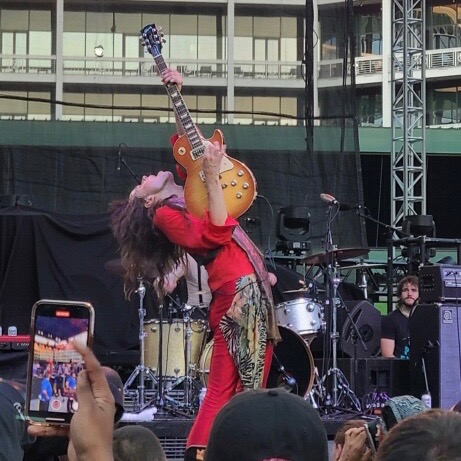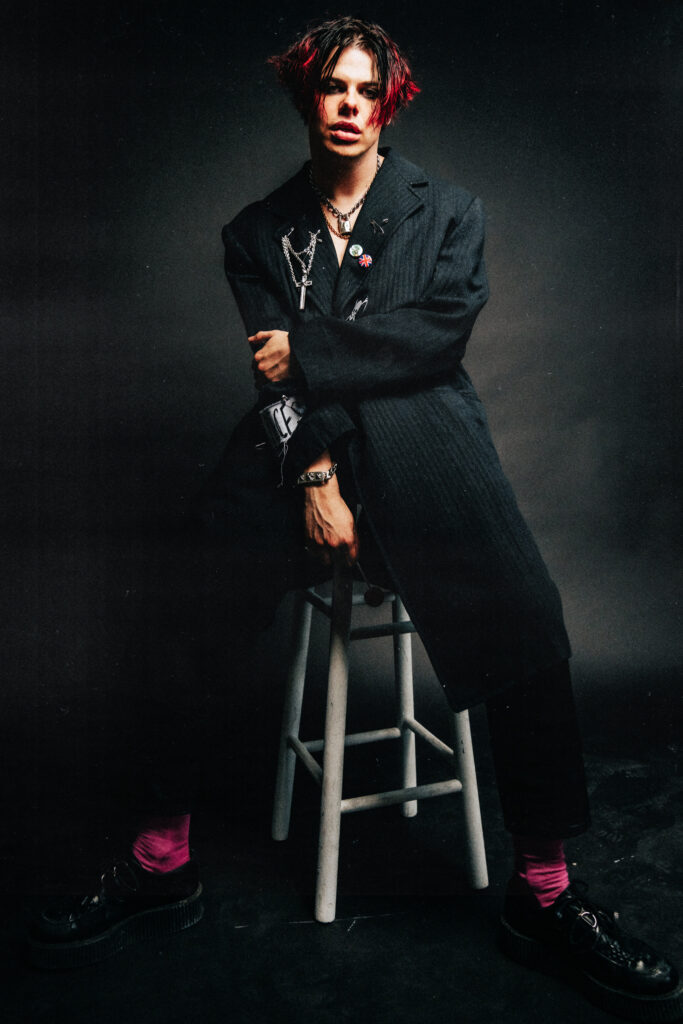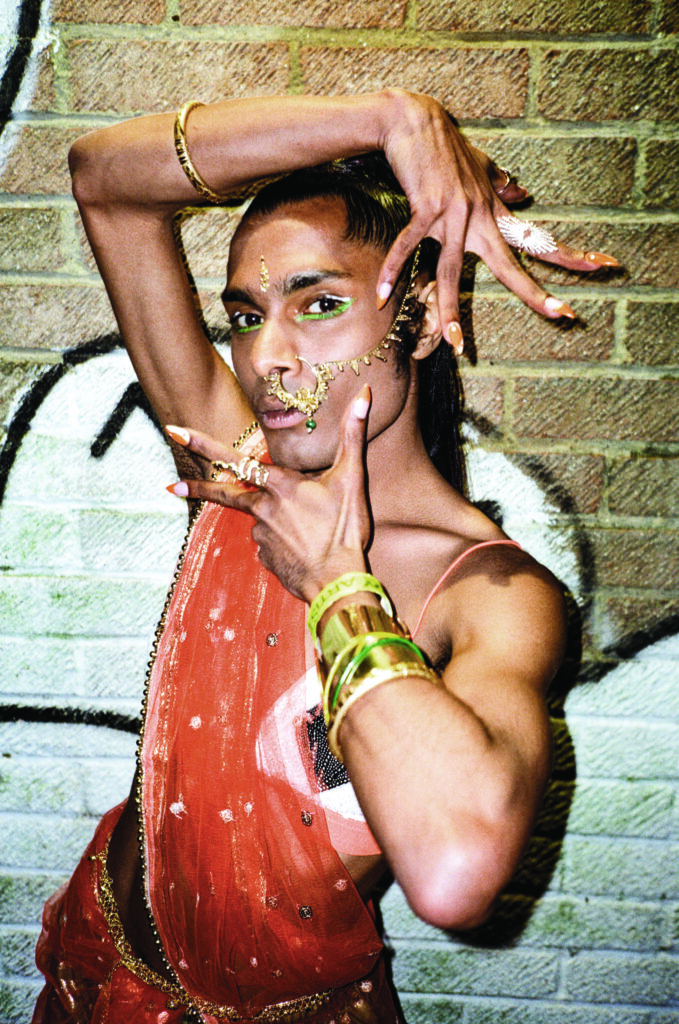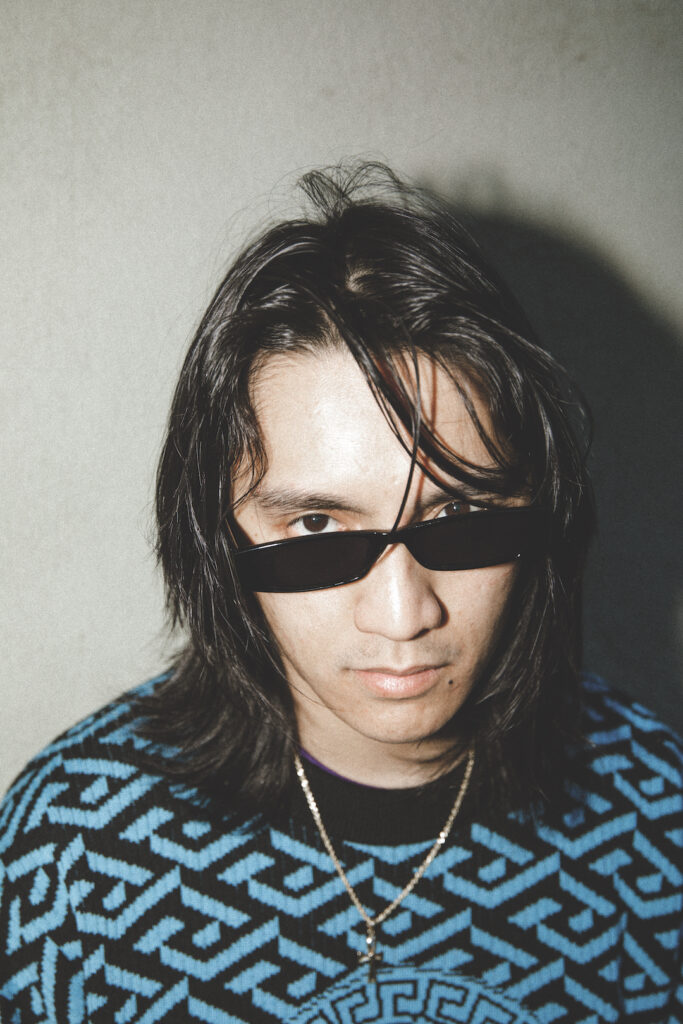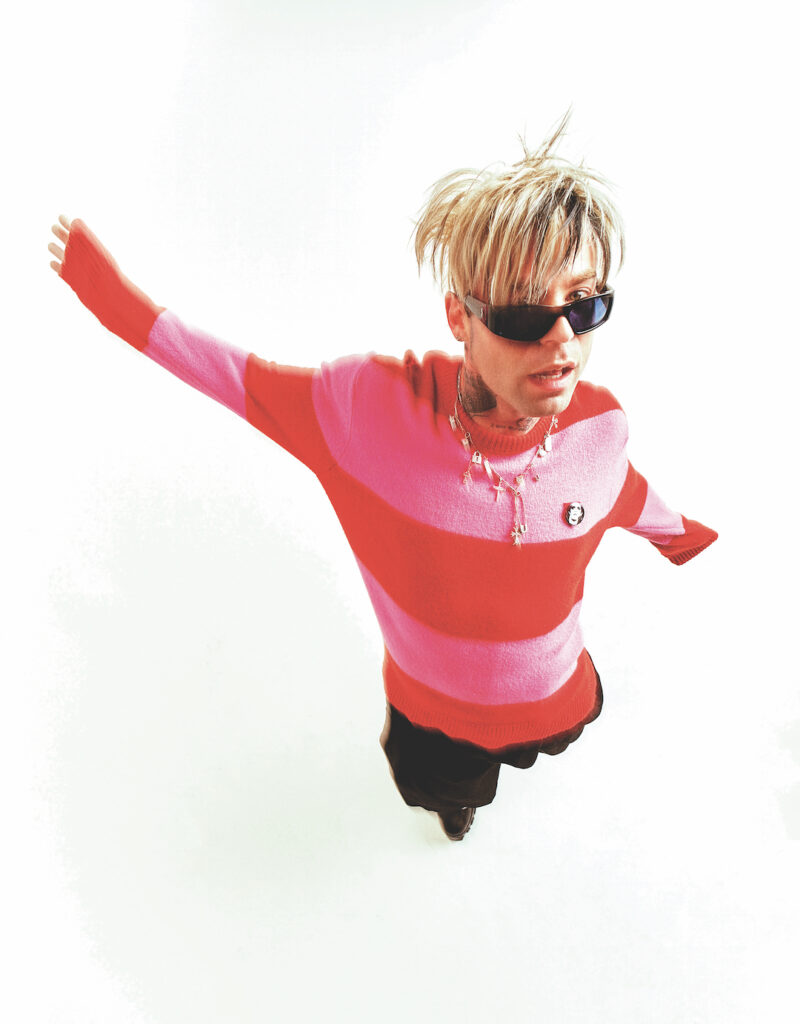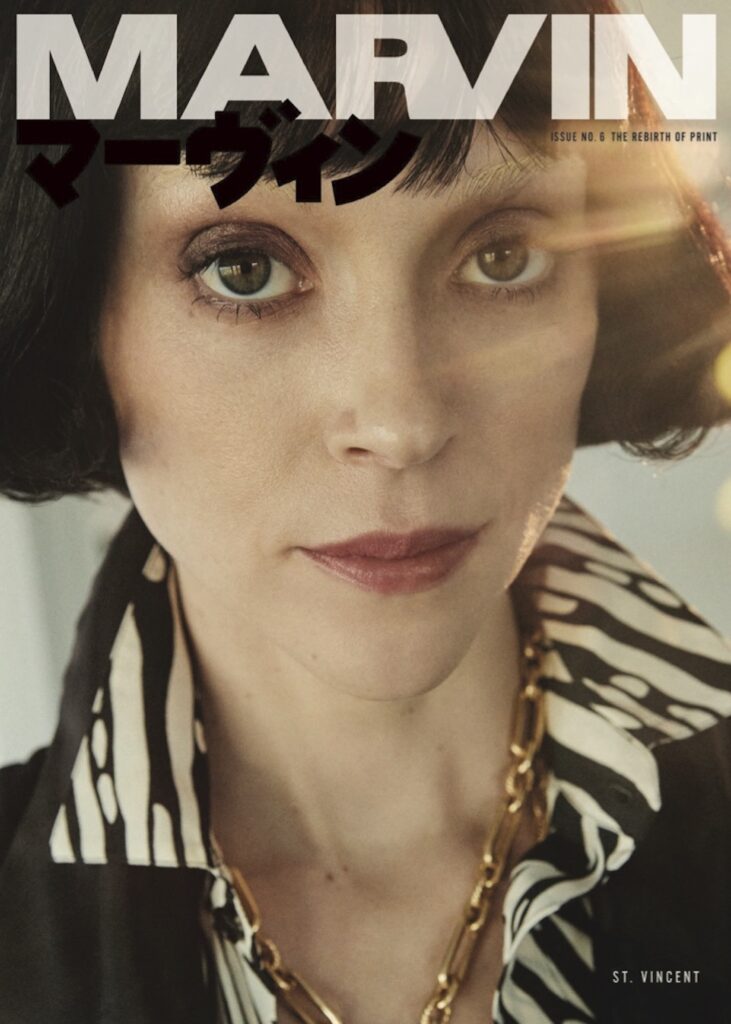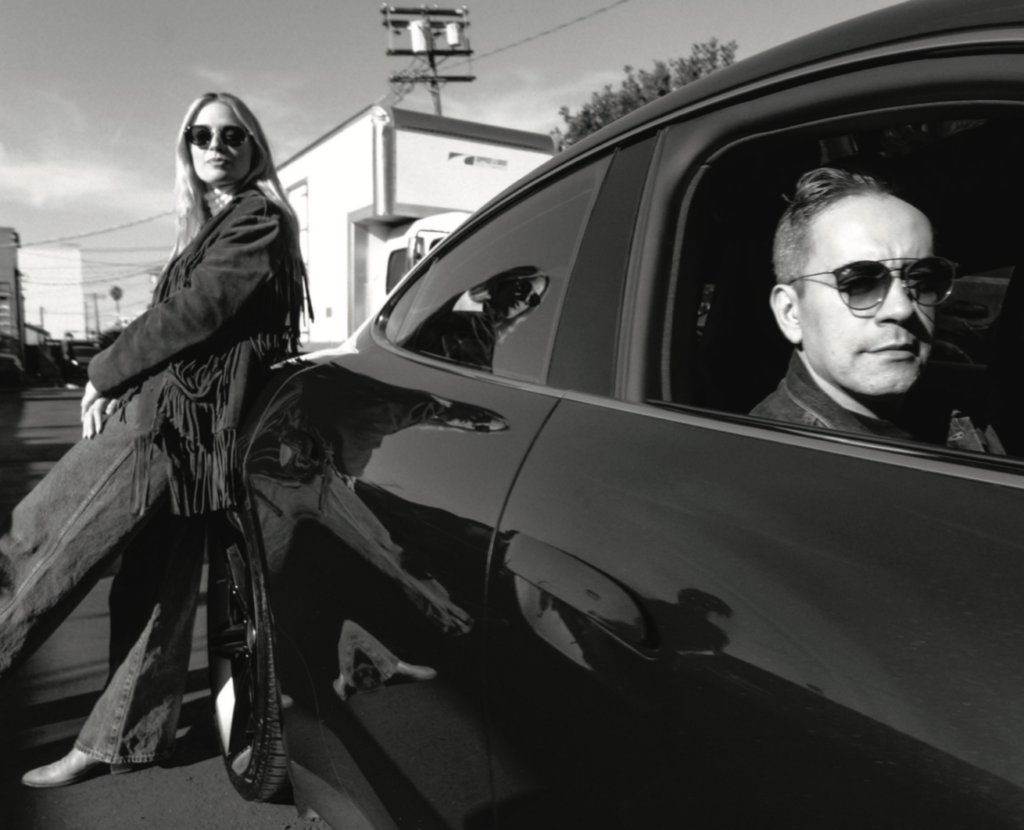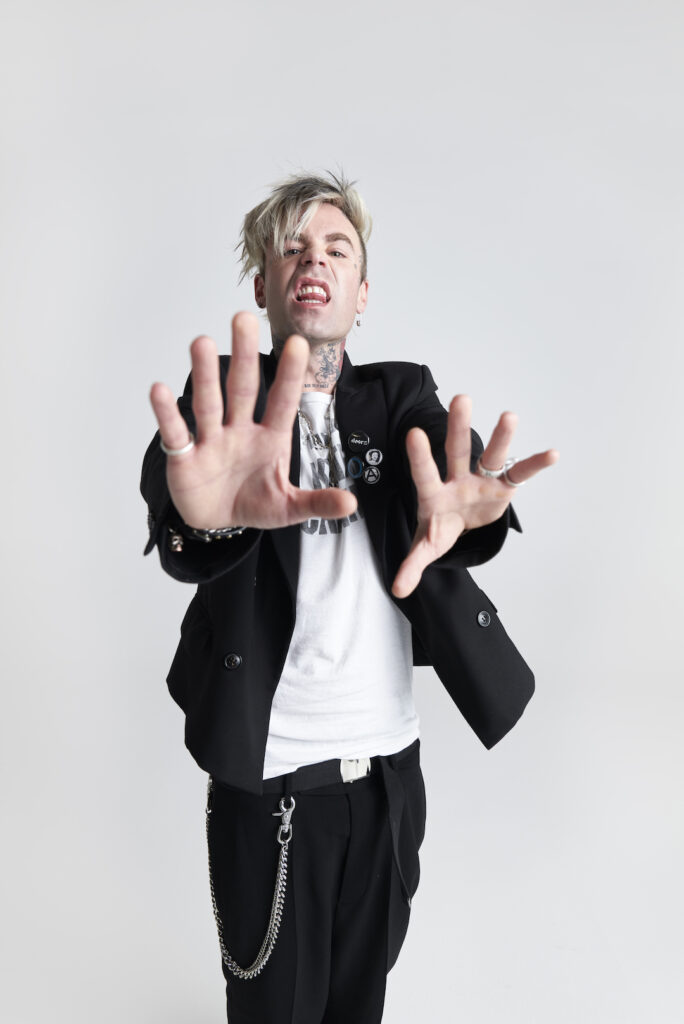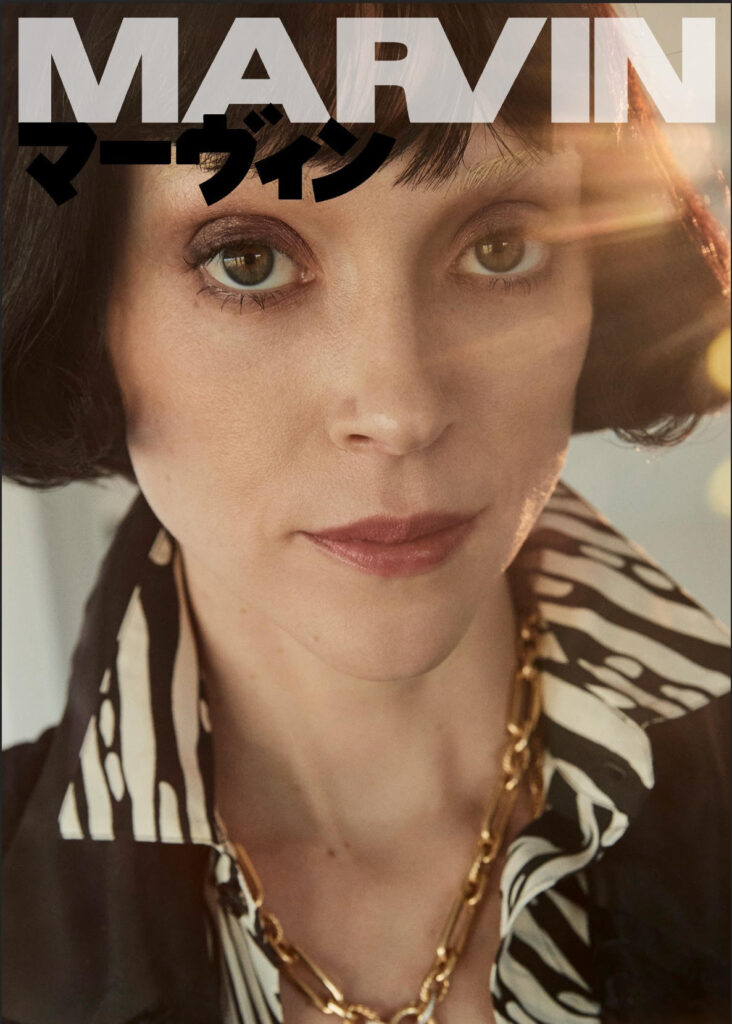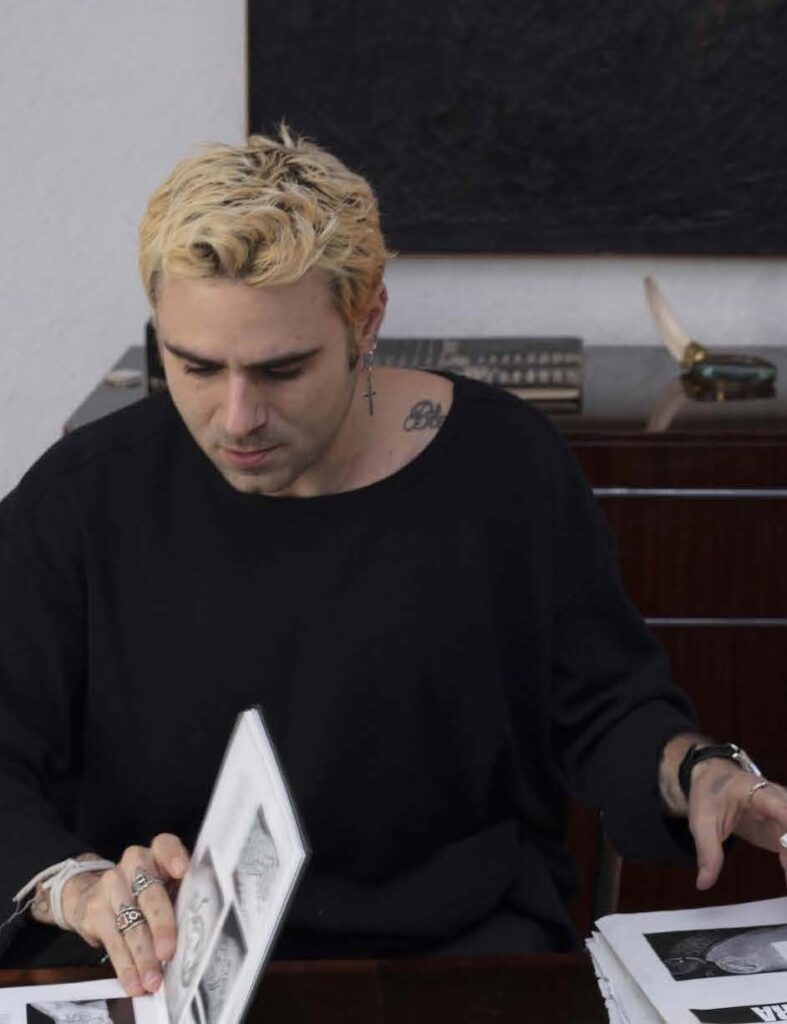Danish Punk Band Iceage Faces Challenges On and Off Tour to Find Growth
Words by Alex Frank
Photography by Dan Wilton
It’s a gray Monday as fall turns to winter, and Elias Bender Rønnenfelt, lead singer of the Danish punk band Iceage, is just getting home to Copenhagen after a months-long string of solo shows. It hasn’t been the kind of tour you might expect from an artist of his stature: though his band released a critically adored new album Seek Shelter in 2021, Covid meant they couldn’t properly hit the road to promote it. And so, faced with a year spent twiddling his thumbs, Rønnenfelt took matters into his own hands, grabbing an acoustic guitar and wandering around Europe playing concerts wherever he found a warm welcome, fielding lowkey invitations by Instagram and email. “The idea of politely waiting to get on with what I do just seemed unbearable,” he says by Zoom from his apartment. “I’d play anything from churches to people’s houses—just this kind of off the cuff sort of way of doing it. Portugal, Germany, England, France, Hungary, Italy.”
Rønnenfelt, now 29, has been in Iceage almost 15 years with five studio albums, but he maintains a kind of passion—romance, really—that charges everything he creates with an urgency and electricity, from the spontaneous tours to the wrenching songs. He’s a Baudelairean balladeer for our times, an evocative, poetic lyricist crafting modern odes of disenchantment and longing, and he does some of his finest songwriting yet on Seek Shelter. It’s an album that was recorded in Portugal long before Covid, in 2019, but since its release right smack in the middle of the pandemic, Rønnenfelt’s search for meaning and transcendence in the words have taken on a gravitas, even an air of prophecy. Songs feature gospel vocal choirs and interpolations of hymnals, and the first track, “Shelter Song” is about seeking a port in the storm—in the love of friends, family, and community—amidst the swell of apocalypse. “It was done before the pandemic. I didn’t know that everybody would have to literally seek shelter in just a few months,” he explains. “When things get rocked, you’re forced to take a look at, ‘okay, what have I got left?’ Any song is just a blind attempt at self- expression. But then if it lands and it somehow resonates with people, that’s a great thing.”
Rønnenfelt grew up in a working class neighborhood in Copenhagen, the city he still calls home. “I was always a bit of a misfit. I didn’t really have helicopter-esque parents, so from an early age I was able to run around the city and get into lots of trouble and meet people and find out what’s out there,” he says. “In Copenhagen, when I was a kid, you could get involved in the punk scene or the queer scene or the hippies or crime. That was quite educational, just to freely run around and make your own mistakes.” He met band- mates Johan Surrballe Wieth, Jakob Tvilling Pless, and Dan Kjær Nielsen as a preteen. “It was a little bit of that thing where you’ve been eyeing each other around town. Something happens a lot at that age when you’re 13, 14, 15, you see each other around and you can kind of sense that there’s just something in their eyes that I might see in the mirror, but not in most people around me,” he remembers. “You find the opportunity to stumble together and we did. And we never left each other.”
When Iceage first emerged in the late 2000s, they were a scrappy, chaotic punk band of sneering teenagers, making messy music and playing even messier live shows. “We would try and get a gig somewhere, and our friends would come and destroy all the furniture in the place, and then we’d get banned from that place until another place was dumb enough to book us again. We were just a bunch of misfits that had a hard time relating to anything around us, and probably a lot of adolescent spite,” he says. “But also, we very much grew together and found a world of our own. Very confrontational, and at the same time very guarded and closed off.” Handsome, brooding Rønnenfelt seemed to enjoy playing the role of the dark, dangerous heartthrob frontman, inspired in part by a childhood love for larger-than-life stars from rock’s 1960s and 70s heyday. “When I was 12 I found that holy trinity of [Lou] Reed, Iggy [Pop], and [David] Bowie—a pure rockstar obsession,” he says. “I don’t subscribe to that punk ethos that everybody should try and be grounded to the same level. It’s okay to put yourself on display and sometimes you need to exaggerate.”
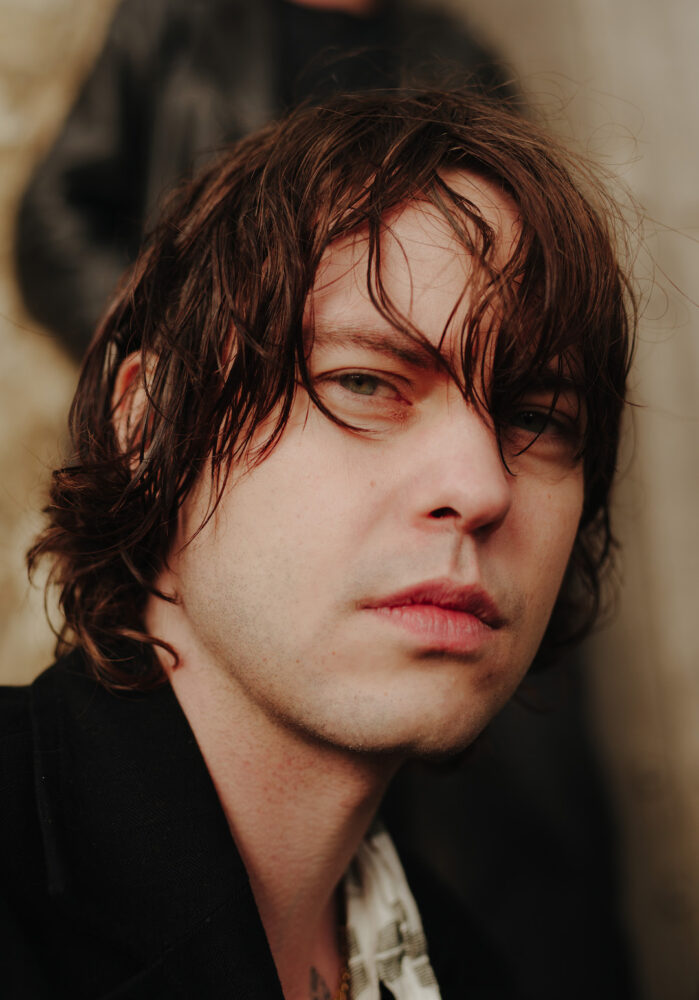
Iceage gained a reputation as unpredictable and caustic, in part thanks to a well-documented adversarial relationship with the press, offering almost any journalist who tried to interview them one word answers and taunts, though Rønnenfelt—at least on this Zoom call—seems to have grown gentler over the years. “We weren’t very trusting of the whole music world. We were 18 when we started out and we got all these 30-something music journalists trying to analyze us. Our immediate gut reaction was just, ‘fuck off,’” he says. “There’s some behavior that an 18-year-old can get away with that is downright psychotic if a 29-year- old does it.” No matter the tumult, Iceage’s music was always grounded in Rønnenfelt poeticism—he’s an avid reader of great literature—though it took him a minute to understand the potential in his own voice. “Well, we agreed on forming a band, so you gotta make some songs. And of course those songs reveal a lot about yourself,” he says. “But the self-realization that this is actually a tool to find some sense of meaning and make sense out of things, I think songwriting has become such an absolutely necessary tool for myself, to make sense out of my life, and anything that goes on around me.”
Over the years, he has called on his great love of books as a muse for his own work. “When I started getting into certain writers, they would more than any- thing open your eyes to the possibilities of language and what you can really do with it. When I was younger, I read Story of the Eye by Georges Bataille. It was like a nuclear bomb in my head. It attracted me, confused me, moved me. Nothing really provoked me that viscerally before. That changed the way I started writing myself,” he says. “Now I think everything I read— it’s not such a conscious thing—just gets absorbed into the grand sponge of everything. And when you squeeze the sponge again, you don’t know what liquids exactly mixed up and then come out.”
Over five albums, the band has both matured and wearied. Their discontent for polite society has worn down over the years into something like hard-won (if still slightly) alienated wisdom. Seek Shelter can best be described as warm, an adjective that once seemed an impossible label for a band called Iceage. Even in the record’s most despairing, cynical, ironic moments, Rønnenfelt finds an empathy, almost sweetness, in the idea that however dark life can be, the bond of person and place is a bulwark. A song is forebodingly titled “Love Kills Slowly” but Rønnenfelt finds a moment on it to sing that we have nothing in the end… but love. “I certainly have a lot of spite for a lot of the ways that people conduct themselves,” he says, “but if you actually interact with what’s around you, the world is a very real place. I haven’t lost faith in us.”
They recorded in Lisbon at a studio that Rønnenfelt describes as a kind of happy home in the ruins at the end of the world. “We always try to get away from Copenhagen and record. Usually we go north, like Sweden or the countryside. But we figured it might be nice to go south this time. It was a 60s radio studio—tall ceilings, everything made of wood, but very dilapidated. It was leaking and it rained through the ceilings. One of those classic studios but a haunted, falling apart version.” Crumbling environment or not, Rønnenfelt found satisfaction in the struggle of creation.
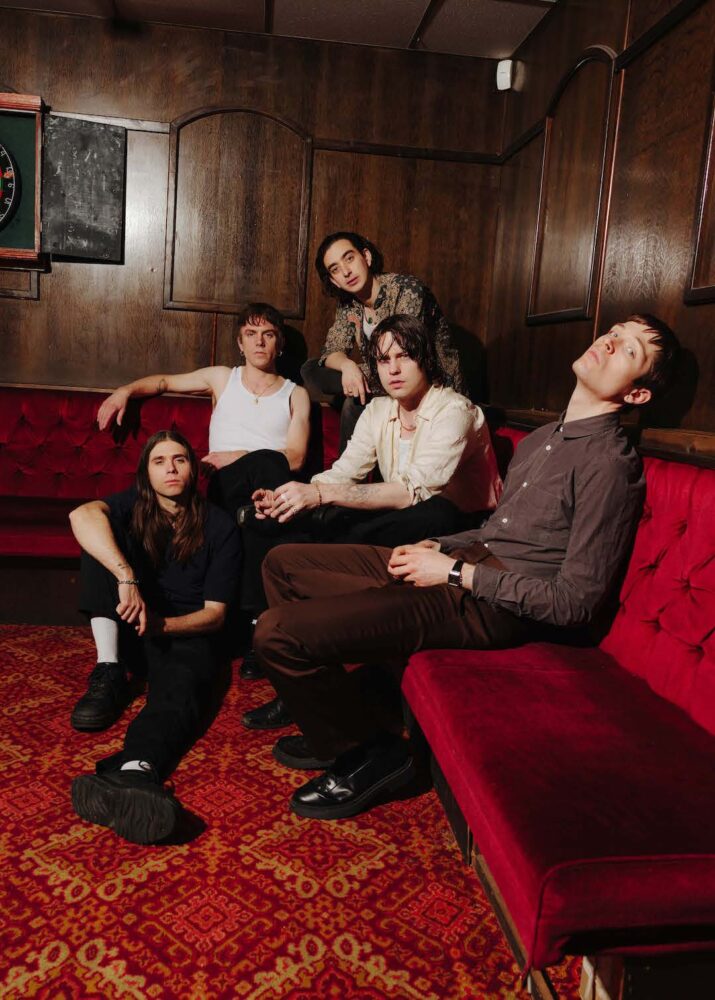
We work around the clock and only sleep when people reach absolute exhaustion. It’s a whirlwind of trying to get at the heart of what you’re trying to say, and you end up banging your head against the wall a lot to loosen your mind. Then you have epiphanies and hopefully by the end it sounds like something close to the thing you set out to make. It’s a pretty desperate attempt, it’s the most fun, but there’s joy and there’s frustration and you have to go through the whole wheel of emotion in order to get out on the other side.
Now that Seek Shelter is out, the world is slowly opening up and the band are on the eve of a full-on international tour beginning in early 2022. In fact, Rønnenfelt has been feeling so back to normal that he’s writing music again, something he found himself slightly unable to do during lockdown. “It wasn’t until things loosened up that the juices really started flow- ing,” he describes. Still, there’s something comforting about the idea that no matter the circumstances of the world, Rønnenfelt would’ve—some way, somehow— found a way to do something artistic and make some- thing musical even if just by roving around an old continent with an acoustic guitar, no plan except a daily mission to explore all that is possible in pursuit of creative purpose. “A lot of [music] is based in moments when everything’s lifted from the confines of mundane living. It’s a seeking or an ache for transcendence and ecstasy. When you do achieve these moments of lucidity (whatever the means to get there) then things seem a little more alive, you’re able to be present in a sense,” he says. “I have a way of just always continuing. Making something tangible out of all the chaos.”
@iceage
